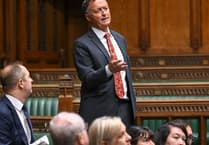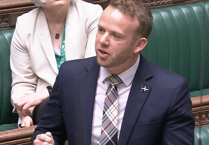One aspect of the Chancellor’s Spending Review that may have slipped under people’s radar when it was announced on Wednesday, was the allocations to farming and nature recovery.
The government has been previously criticised for introducing Inheritance Tax for farmers. But some of those critical voices have gone a little quiet or are even now actually welcoming Rachel Reeves’ announcement. The Labour Government is investing more than £2.7-billion a year in farming and nature recovery. Funding for the Environmental Land Management Schemes (ELMS) paid to farmers will skyrocket by 150 per cent from £800-million in 2023/2024 to £2-billion by 2028/2029.
Overall, farmers and land managers will benefit from an average of £2.3-billion a year through the Farming and Countryside Programme, and up to £400-million from additional nature schemes. On nature and the environment, this allocation is the largest investment into nature in history, with over £7-billion directed into nature’s recovery. This includes environmental farming schemes (£5.9-billion), tree planting (£816-million) and peatlands (£85-million) making a significant contribution to our Environment Act targets, improving water quality and biodiversity. But don’t take my word for it. Listen to what those who work in the sector had to say.
On the farming element of the package, Tom Bradshaw, President of the National Farmers’ Union (NFU) said: “I am pleased the government has listened, and credit should go to DEFRA Secretary of State, Steve Reed, for his work in maintaining a budget against such a tough financial backdrop.”
On nature and the environment, CEO of River Action James Wallace said: “We welcome increased funding for ELMS. This gives us hope that the government recognises the role of farmers in tackling pollution and restoring nature”.
Joan Edwards OBE, director of policy and public affairs at The Wildlife Trusts, said: “The UK is one of the most nature-depleted countries in the world, and many feared that today’s Comprehensive Spending Review would worsen the declines of wildlife. Fortunately, the Government has listened to the united call from farmers and nature organisations to protect England’s nature-friendly farming budget, one of the most cost effective and efficient ways to reach nature recovery and climate targets across vast swathes of the country.”
Hilary McGrady, Director-General of the National Trust, said: "Nature and wildlife aren't nice-to-haves. They underpin our health, our economy, our communities, and the food, water and air we need to survive. The Chancellor has recognised this and listened to the calls of the British public, together with those of the environment and the farming sectors, and maintained the budget for nature-friendly farming. Environment Secretary Steve Reed deserves credit for securing this budget in challenging financial circumstances.’’
I haven’t spoken publicly about this before, but I am a member of the Labour Rural Research Group, a group of Labour MPs who have been lobbying Government from within on behalf of our farming communities. I have met with many farmers from across Camborne, Redruth and Hayle as well as our local NFU reps. I will continue to work with them as we transition UK farming to a more sustainable and commercially viable model.





Comments
This article has no comments yet. Be the first to leave a comment.